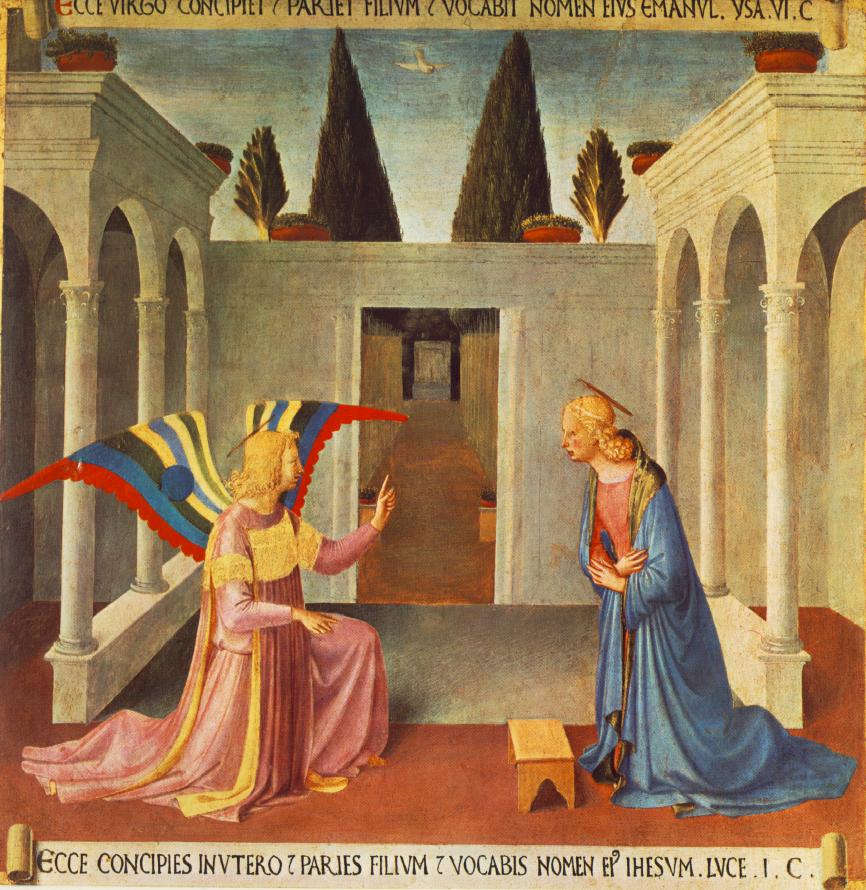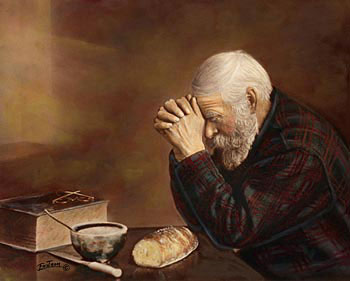There has been a lot of discussion lately about sexual consent, and for good reason. We live in a hypersexualized culture in which women’s bodies are frequently objectified and devalued. The roots of this misogyny run deep, and touch religious traditions and institutions as well. Think, for example, of the fact that within the Bible we see examples of patriarchal marriage traditions in which it is assumed that women and children are treated as property. In the Catholic tradition it took a long time for marriage to be recognized as a sacrament. Certainly Catholic marriage traditions have developed significantly, and contemporary magisterial teachings affirm the equal dignity of husband and wife in Christian marriage. This is to be celebrated. But given the prevalence of hookup culture and rape culture, we still have much work to do in contemporary U.S. society. As Meghan Clark has argued on this blog and elsewhere, Christians have a role to play in this climate, especially in challenging sexist and disempowering messages that have become the normal script for so many teenagers. Lots of Christian ethicists have been raising these issues, focusing on the importance of freedom, equality, mutuality, intimacy, and fruitfulness as norms for sexual ethics (see Margaret Farley, Karen Peterson-Iyer, Christine Gudorf, Marvin Ellison, Kevin Kelly, to name a few). Since I’m teaching a course this semester on Sexual Ethics, I’ve been thinking a lot about what it might mean to affirm a social norming that promotes the full equality and freedom of sexual partners. Given the importance of the No Means No messaging, I am wondering how to continue to raise awareness about the importance of free consent. And when reflecting on today’s gospel reading, I saw a connection between a perceived tension within the narrative and these contemporary issues.
One recent example of the social norming approach to sexual consent is found in a trending Facebook link that uses the metaphor of inviting your partner to have a cup of tea. As Emmeline May explains, if you are confused about what free consent to sexual activity means, think about it as an invitation to tea. You ask your partner, “Would you like a cup of tea?” and if your partner says yes, then you know that your partner wants tea. But your partner is free to say no, or to change his/her mind. And under no circumstances are you to force your partner to drink tea. Seems straightforward enough, right?
If we are going to talk about real consent–in sexual ethics but also in other areas of our lives– then the decision must be a free choice. But having this in mind made me want to edit today’s gospel from Luke’s infancy narrative. When we celebrate the Annunciation, I want to emphasize Mary’s free consent, her “yes” to God, “may it be done unto me according to your word.” But what I noticed today, which I have never noticed before, is that God’s messenger is kind of pushy.
Behold, you will conceive in your womb and bear a son,
and you shall name him Jesus….
The Holy Spirit will come upon you,
and the power of the Most High will overshadow you.
Therefore the child to be born
will be called holy, the Son of God….for nothing will be impossible for God.
As I was praying with this Scripture this morning, I wondered: Why can’t the angel describe what might happen, if Mary consents? If the angel is simply there to declare that this will happen to Mary, does Mary really consent? In an article I discussed with my students today, Karen Peterson-Iyer explains that a choice driven by the desire to please cannot be considered free in the fullest sense. Free choices are rather choices that result from “thoughtful, well-considered decisions, not choices made from social pressure, insecurity, or a lack of assertiveness.” (“Mobile Porn,” JSCE, 103). It would be a problem if God’s messenger is bullying Mary, or cajoling her into accepting a role that she does not choose herself. Elisabeth Vasko has written persuasively of the need for Christians to stand up to bullying behavior. Given this, it is important that we highlight issues of bullying and coercion when we see them–even in our Scriptures. Now, I don’t necessarily see the angel in this story as a bully. But the angel does tend to describe what will happen to Mary before she has made up her mind. It is this that leads me to think that it is worth reflecting on how we might reimagine this conversation between God’s messenger and the young woman, Mary of Nazareth. Can we tell the story in a way that emphasizes her free consent? I took out my metaphorical red pen and tried to work on some revisions. Here’s what I came up with for Luke 1:26-38:
The angel Gabriel was sent from God to a town of Galilee called Nazareth,
to a virgin betrothed to a man named Joseph, of the house of David, and the virgin’s name was Mary.
And coming to her, he said, “Hi Mary. How are you? I want to remind you that you have inherent dignity. God told me to tell you that you are a treasure beyond measure. No matter what choices you make, God will always love you. You will always be special to God. God is especially pleased by your faithfulness and integrity, and because of this God has a favor to ask of you. Now, I’m not trying to pressure you, but I was sent here to explain the predicament and see if you could help.”But Mary was greatly troubled at what was said and pondered what sort of greeting this might be.
Then the angel said to her, “Do not be afraid, Mary, for you have found favor with God.
See, God believes that you would be a wonderful parent. Would you be willing to let God impregnate you? I know it sound strange. You can say no. Really, you can. If you decide to say yes, here’s how it would work. You will become pregnant by God’s Spirit, and then the baby will grow inside you for about nine months, and then you’ll give birth to a baby boy. God has picked out the name already. Would you be willing to call him Jesus? I guess that part could be negotiated if you have a strong opinion. God told me to ask you about that. Remember, you can say no to all of this. But if you say yes, you’ll see that your son will be really special too. He will be great and will be called Son of the Most High, and the Lord God will give him the throne of David his father, and he will rule over the house of Jacob forever, and of his Kingdom there will be no end.”But Mary said to the angel, “How can this be, since I have no relations with a man?” And the angel said to her in reply, “Yes, it is confusing, isn’t it. If you say yes, the Holy Spirit will come upon you, and the power of the Most High will overshadow you. Therefore the child will be called holy, the Son of God. And behold, Elizabeth, your relative, has also conceived a son in her old age, and this is the sixth month for her who was called barren; for nothing will be impossible for God.”
Mary said, “Yes. I’ll do it. This should be interesting. Behold, I am the handmaid of the Lord.
May it be done to me according to your word.”
Then the angel departed from her.
In my retelling of the story, I don’t let the angel simply declare to Mary what will happen. Instead, the angel invites, encourages, lets her determine her response. If consent is really free, it must be the result not of the angel’s declaration but of Mary’s free decision. If Mary is an example of free consent in the Scriptures, we should take care to be sure that what we are describing actually mirrors free consent.
A colleague and friend pointed out to me today that a dominant Catholic tradition of interpreting Luke 1 legitimizes my revised reading, even if this is not as clear in the Scriptural text as I would prefer. For example, feminist theologian Elizabeth Johnson writes, in Truly Our Sister: A Theology of Mary in the Communion of Saints, that Mary does freely consent to bear God’s Son. Here is how Elizabeth Johnson interprets Luke 1:
The annunciation scene, which appears after the announcement of the birth of John the Baptist, depicts Mary with a mood of celebration as a hearer and doer of God’s word. The angel Gabriel was sent from God to a young, unlettered woman in Nazareth, a poor village in the oppressed peasant region of Galilee… Assured that the Spirit will empower and protect her, she gives her free consent, casting her lot with the great work of redemption in the belief that nothing is impossible with God. (248, emphasis mine)
Contrary to an interpretation that focuses on Mary’s obedience and passive receptivity, Johnson argues that in Luke 1 Mary is “a woman commissioned by God” (250). Focusing explicitly on the issue of free consent, Johnson writes:
Divine freedom does not override created freedom but waits upon our free response, which, in a theology of grace, God has already made possible. Hearing the divine call, Mary decides to say yes. Casting her lot with the future, she responds with courage… Her stance is one that affirms her own identity in the act of radical trust in God, based on a bedrock conviction that God is faithful…. This young peasant girl discerns the voice of God in her life commissioning her to a momentous task. Exercising independent thought and action, she asks questions, takes counsel with her own soul. In a self-determining act of personal autonomy, she decides to go for it. This is her choice and it changes her life. A woman of Spirit, she embarks on the task of partnering God in the work of redemption. (254-6, emphasis mine)
So if Elizabeth Johnson and others in my tradition already see this as a valid interpretation, perhaps my revised reading is unnecessary. Maybe I’m being too hard on the angel. But I believe that further reflection is needed on this and other parts of the Scriptures if we are to continue to find resources within the tradition for affirming women as equal to men. If Mary is to continue to be a role model for Christians, highlighting her courage, integrity, faithfulness, questions, assertiveness, and free consent can mean that her story has much to teach us today, not only about purity of heart but especially about her strength of character and self-determination.






I don’t think any interpretation other than Mary’s free consent is really compatible with the Catholic understanding of the nature of God and the nature of Mary as co-redemptrix.
Neither is it compatible with our own personal religious experience that God never coerces us either.
God Bless
There goes the common phrase “let’s go”.